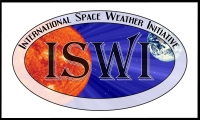Atmospheric Weather Electromagnetic System for Observation, Modeling, and Education monitors (AWESOME)
PIs: Dr. Morris Cohen (Georgia Tech), Dr. Umran S. Inan and Ms. Deborah Scherrer (Stanford Univ.)
The AWESOME and SID instruments are ELF/VLF receivers that track changes to the Earth’s ionosphere caused by lightning-related events and solar activity.
- AWESOME — Atmospheric Weather Electromagnetic System for Observation, Modeling, and Education monitors
The AWESOME receiver monitors a number of VLF radio transmissions as well as ELF natural signals such as those emitted by lightning and wave-particle interactions in the Earth’s magnetosphere. The instrument monitors amplitude and phase of VLF transmitted signals (from nations to their submarines) with a 50 Hz time resolution. It also monitors the radio spectrum between 300 Hz and 50kH to detect naturals signals from lightning-induced events (sferics, whistlers, chorus, hiss). - SID — Sudden Ionospheric Disturbance monitors
The SID monitor is a simpler version of the AWESOME instrument, intended for educational use in high schools and early college. SIDs track VLF transmissions (from nations to their submarines) with a 0.2 Hz time resolution. SID instruments are primarily used to track changes to the Earth’s ionosphere caused by solar activity.
Both AWESOME and SID receivers were created at Stanford University and distributed throughout the world during the International Heliophysical Year and the International Space Weather Initiative. There are currently more than 28 AWESOMEs and 650 SIDs deployed over the world (see map below).
Resources
AWESOME and SID Program Home Page
Overview of ELF and VLF studies
Overview of the AWESOME and SID receivers, the IHY/ISWI global program, and scientific applications of VLF receivers (pdf – 8Mb) (broken link)
![]() Sound files (.wav) for the receiver overview (to listen to the audio, you may need to install appropriate plugins or apps on your computer or browser)
Sound files (.wav) for the receiver overview (to listen to the audio, you may need to install appropriate plugins or apps on your computer or browser)
- chorus wave observed on satellite (ChorusInSitu1.wav)
- VLF ‘click’ sferics observed by an AWESOME receiver (Clicks1.wav)
- VLF hiss observed by an AWESOME receiver (Hiss1.wav)
- VLF ‘pop’ sferics observed by an AWESOME receiver (Pops1.wav)
- VLF ‘tweek’ sferics observed by an AWESOME receiver (Tweeks1.wav)
- VLF whistler observed by an AWESOME receiver (Whistler1.wav)
- All sound files at once (AWESOMEMultimedia.zip, 2Mb)
References
- Morris B. Cohen, Umran S. Inan and Evans W. Paschal. Sensitive Broadband ELF/VLF Radio Reception With the AWESOME Instrument IEEE TRANSACTIONS ON GEOSCIENCE AND REMOTE SENSING, VOL. 48, NO. 1, pp.3-17 (describes the AWESOME receiver) https://doi.org/10.1109/TGRS.2009.2028334
- Deborah Scherrer, Morris Cohen, Todd Hoeksema, Umran Inan, Ray Mitchell, Philip Scherrer. Distributing space weather monitoring instruments and educational materials worldwide for IHY 2007: The AWESOME and SID project Advances in Space Research 42 (2008) pp.1777-1785 (describes the global scientific outreach program) https://doi.org/10.1016/j.asr.2007.12.013
- C.T.More, A.K.Sharma, R.V.Bhonsle, K.J.W. Lynn Field Strength Measurement of VLF Radio Wave Propagation at 19.8 kHz between Australia and India in Proceedings from 10th Australian Space Science Conference, Brisbane, 27-30 September, 2010, pp.249-262 (one of the best descriptions of how the SID monitors respond to the Earth’s ionosphere) Available via researchgate: https://www.researchgate.net/publication/322404376_Field_strength_measurement_of_VLF_radio_waves_at_198_kHz_between_Australia_and_India
